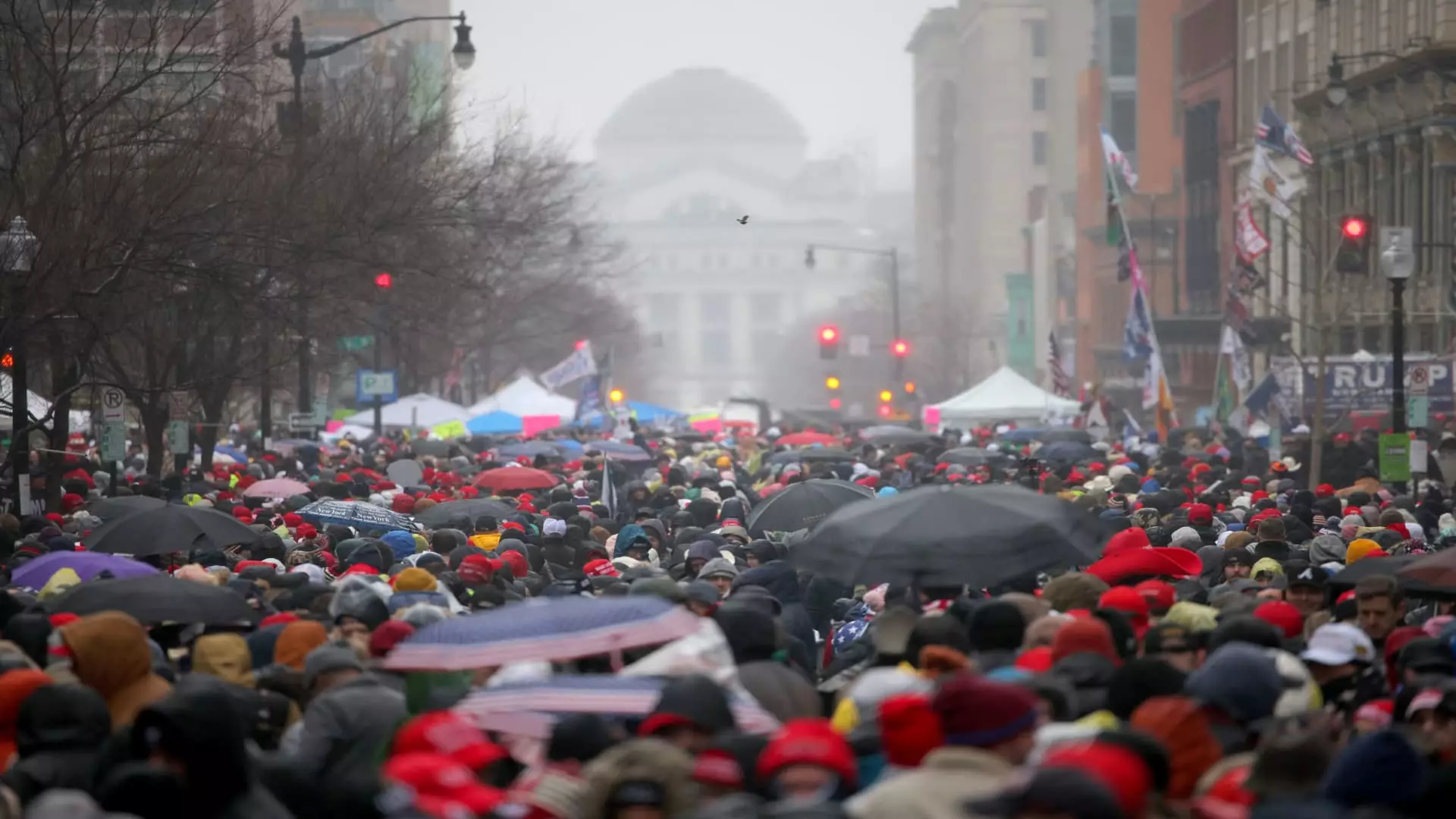The political landscape in America has always been marked by fervent gatherings, passionate supporters, and the palpable energy of a nation divided yet united by its ideals. Recently, this became evident when thousands gathered for Donald Trump’s “Make America Great Again Victory Rally” in Washington, D.C. on the eve of his second inauguration. The atmosphere was charged with anticipation as supporters braved inclement weather, embodying the unyielding spirit of a movement that thrives on a combination of nostalgia, nationalism, and a vision for America’s future.
Trump’s ability to draw such dedicated crowds is rooted deeply in a historical context that traces back to the 2016 election cycle. His unique brand of populism resonates with a significant segment of the American populace, emphasizing border security, trade protectionism, and an aversion to political correctness. The victory rally served as a reflection of this ongoing loyalty, highlighted by people like Val Tordjman, who traveled across the country despite frigid temperatures, underscoring the lengths to which supporters would go to witness a moment they deem vital.
This rally is not only about Trump; it’s about an ideology that many believe in fiercely. The supporters in their red jackets and MAGA hats represented a collective sentiment echoing through America’s heartland— a plea to return to what they consider traditional American values. Their chants of “USA! USA!” encapsulated their fervent nationalism, as they awaited Trump’s promises to revive policies that they believe reflect their aspirations for the country.
The choice of venue—Capital One Arena—was strategic, a symbol of a new chapter in Trump’s political journey. The indoor setting, necessitated by harsh weather conditions, symbolized adaptability in the face of adversity, a theme that resonates with Trump’s narrative of struggle against the establishment. Amid heightened security around the Capitol and White House—symbolized by steel fences and an increased law enforcement presence—this rally exemplified the juxtaposition of celebration amidst apprehension.
Trump’s pre-rally activities, including a solemn tribute at the Tomb of the Unknown Soldier, added an element of reverence to the day. It was a reminder of the sacrifices made for the country and the importance of patriotism, themes that have long been staples in his rhetoric. Here, Trump’s salute and the playing of “Taps” framed him not just as a politician but as a figure steeped in the traditions of military respect and national pride.
Looking ahead, Trump’s agenda appears aggressive and focused, especially concerning immigration and energy policies. His incoming national security adviser, Mike Waltz, pointed towards fierce immigration enforcement as a primary objective, promising actions like lockdown measures at the border and targeted deportations. This proactive approach aligns with the fears and aspirations of many constituents who feel insecure about the current state of immigration and crime.
Moreover, Trump’s musings on potential territorial acquisitions further exemplify his unorthodox approach to foreign policy. Such remarks, though bewildering to global allies, amplify his position as a disruptor in the political arena—an outsider who is not bound by traditional diplomatic norms.
The rally featured an assembly of influential figures, signaling Trump’s unshakeable hold on his base but also his sustained relevance in cultural and political spheres. With appearances from prominent personalities—including Elon Musk and UFC executives—the event highlighted the intersection of politics and entertainment that Trump has mastered. This embrace of celebrity within a political context underscores the ongoing transformation of American political engagement, where fame and influence often overshadow traditional political discourse.
Performers like Kid Rock and The Village People added a festive tone to the rally, reinforcing the notion that Trump’s supporters find joy and camaraderie in their shared beliefs. The cultural endorsements aligned with Trump’s message further solidify the communal aspect of his rallies, transforming them from mere political events into celebrations of identity and ideology.
As Joe Biden made his final official trip as president, the stark contrast in approaches was evident. Biden’s focus on civil rights and legacy compared to Trump’s vigorous rallying cry for nationalism epitomizes the bifurcated nature of American society today. Both leaders represent divergent paths that the nation can choose to follow, and as Trump prepares to re-enter the political fray, the anticipation is palpable.
The “Make America Great Again Victory Rally” was more than just a political event; it was a flashpoint in a broader narrative of America’s cultural and ideological divide. As Trump steps back onto the national stage amidst a backdrop of celebration and scrutiny, the journey ahead promises to be as tumultuous as it is significant.


Leave a Reply